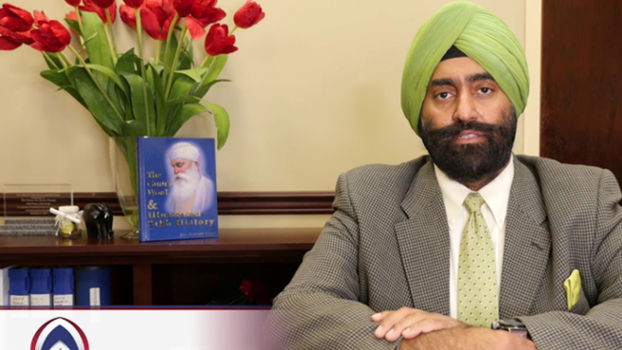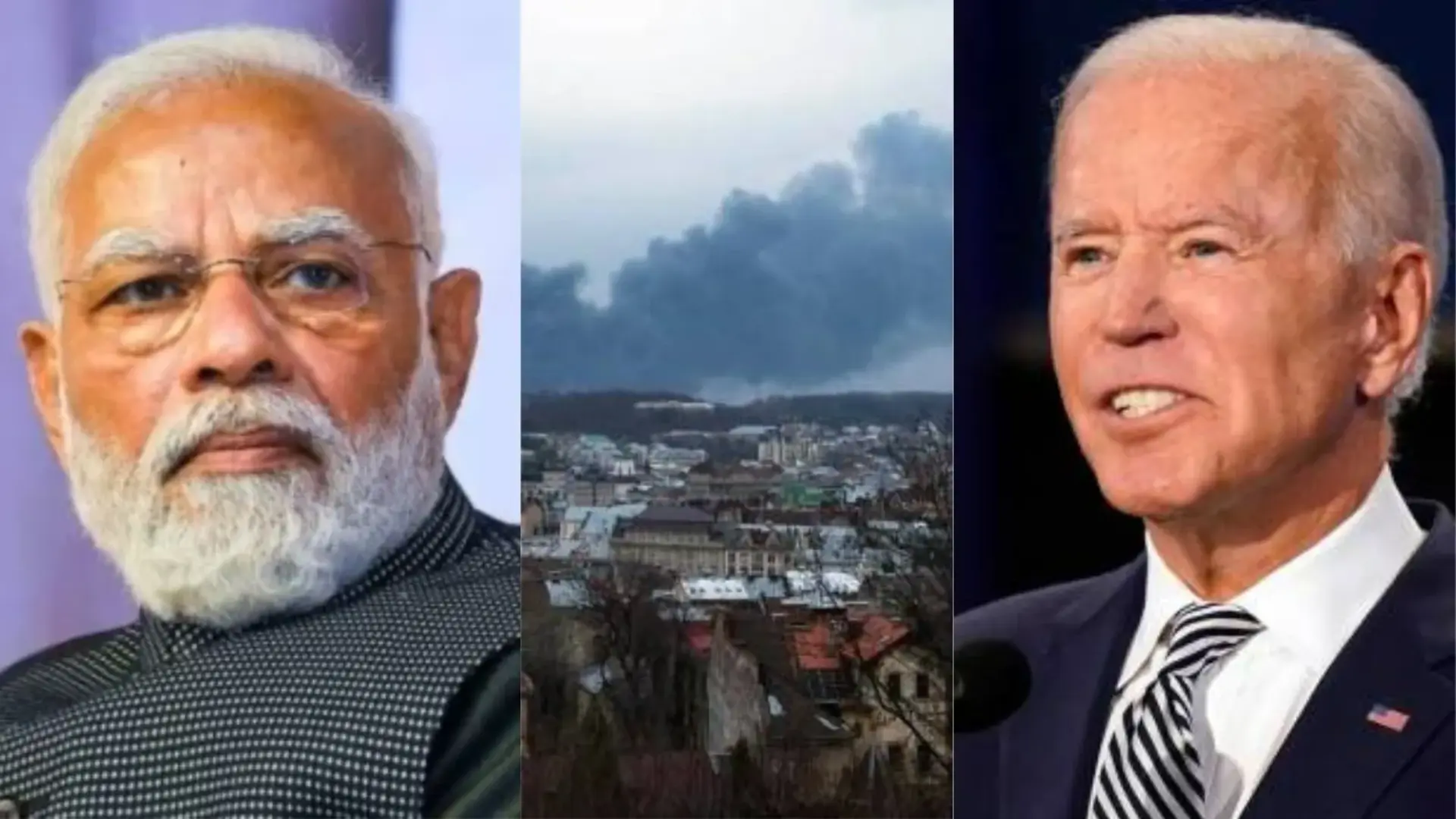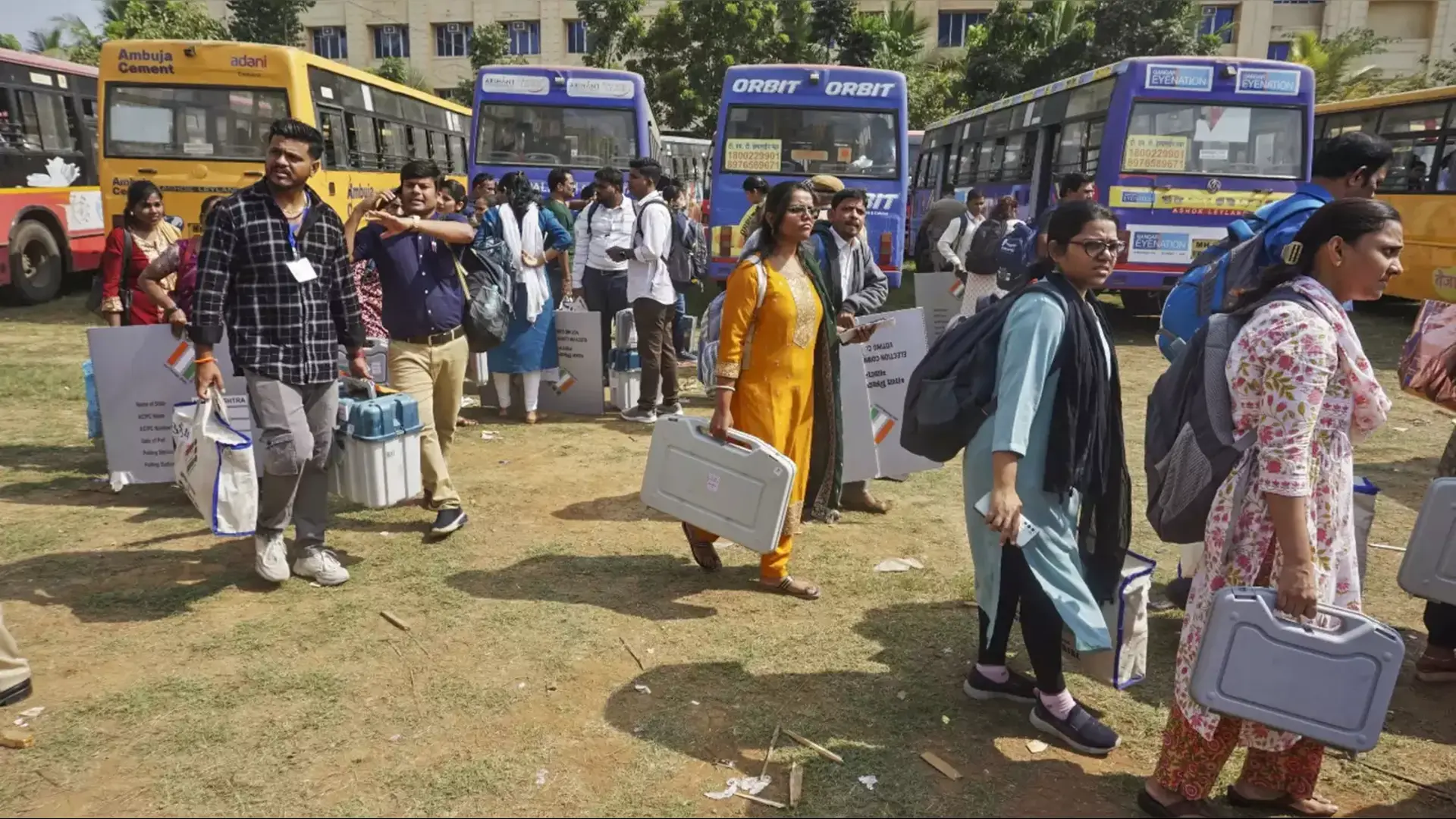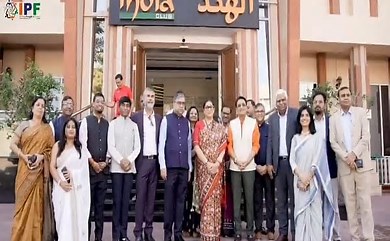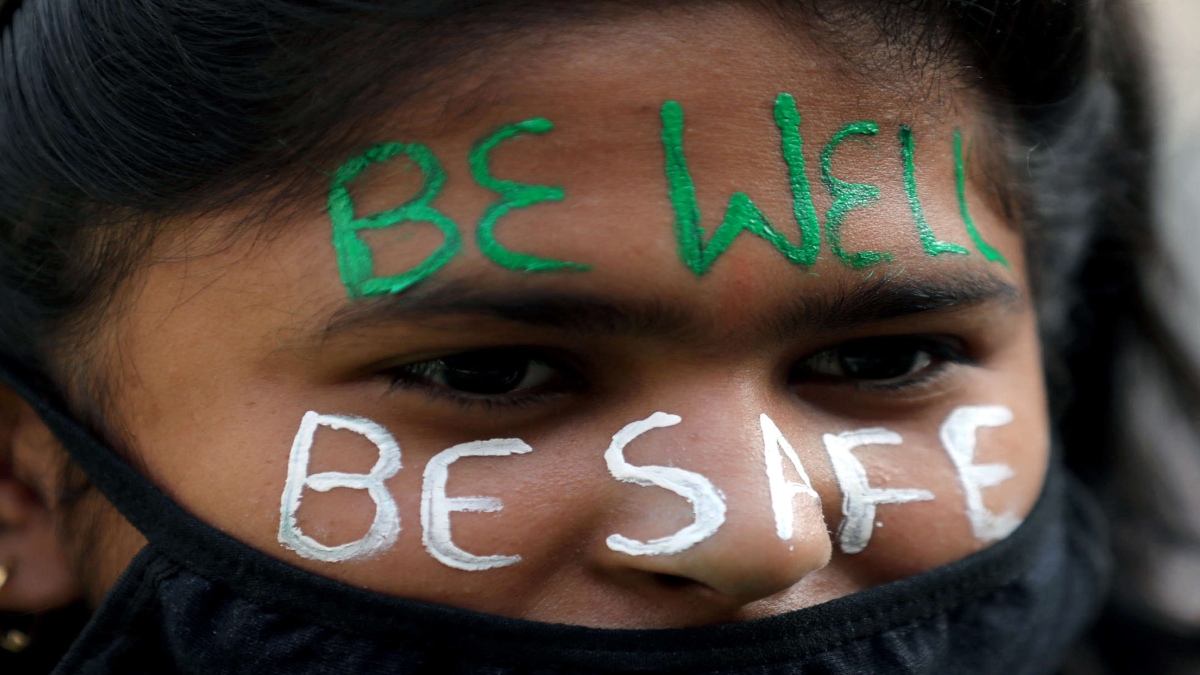
Spring in Lutyne’s Delhi is a burst of colours — the brightest bougainvillaeas covering porch tops, trellis over entrance gates, the Gulmohar trees flaunting scarlet clusters, the sensuous purples, the purest whites, and at places confetti of cotton wicks from bursting pods of a cotton tree — paint a classic picture of spring in the city. Spring arrived this year too like many more before.


It was in January last year we all were first introduced to the term social distancing. Back then the virus had seemed, to me at least, a threat unique to China. Social distancing would make a good novel title, I joked, never imagining that Americans would be doing the same in a matter of weeks, that the phrase would soon be joining so many others — community spread, an abundance of caution, flattening the curve.
It was around this time last year my sons’ school had moved to online learning, and shops and restaurants began to shut. My kids like all others I believe, suddenly found themselves sealed within the walls of their homes — no school, no sports, no outings. Both my sons in their early teens initially responded by immersing in the world of video games — Call of Duty, Clash of Clans, and soon started lamenting the impossibility of hanging out with friends and making new friends in what we call the old analogue style. A die-hard soccer aspirant, my elder son appeared relatively cheerful despite his suspended coaching classes. The scheduled tournaments that he had been eagerly waiting and preparing for got cancelled, one after another where there was an immense possibility for him. Slowly, I found him adapt to the circumstances and embrace the life of an ascetic, practising all by himself passing, shooting, and chipping the ball in a small park; and then running fifteen kilometres a day round and round the colony we live in.
The growing realisation that like last year this time around I,too, have no choice like my boys. This has given me panicky loneliness. During the first wave last year, as a doctor and a writer, I found solace in writing medical pieces, short stories, and gorging myself on electronic media. Those days I worried for the millions of workers who had lost their jobs, students without a computer or a smartphone of their own, and the migrant workers who lived on day-to-day earnings and how dozens of them had to stay packed into a single room in a city under lockdown. And this time, the same thoughts surfaced in me. The way this second wave is lapping at us makes me wonder if we faced this pandemic recently — a couple of weeks back. We’re in a health emergency despite the lurking threat for over a year . Does it even qualify to be a sudden emergency Hadn’t we enough time for planning and preparation? If only we knew our priorities.
Soon started the onslaught of social media posts about all the adorable quarantine activities that seemingly everyone, including doctors with the highest super-specialisations, people with shining degrees in management and law, were undertaking with their families — making cakes, cookies, reenacting famous paintings for photography, and at times, quite frequently, virtual get-togethers and alumni meets. I preferred to avoid such meets simply because you need to wear proper clothes and make-up to sit in front of the camera, and more than in physical/real meets, here one may have to undergo closer scrutiny. Days passed by at times in a whirlpool and at times at a snail’s pace. I took perverse pleasure in newspaper articles about China’s spiking mental diseases, rising divorce rates, and increasingly desperate dispatches from parents who had failed at homeschool.
Then, one day last year I figured out that one of my two pet dogs, Nancy was rapidly losing weight; the vet I consulted on a video call suspected intestinal lymphoma, but there was no one in the office who could administer an ultrasound. ‘I’m feeling lonely, yet too busy without the house helps and two kids to tend to!’ I wrote this to every close friend on WhatsApp text. “(((HUG))),” they would reply, which felt more comforting than you might think. Old friends sent me a selfie in their quarantine grey hairs, hairy upper-lips and overgrown beards. I told my close friend Nayna who lived abroad all about my life, my writings, cancelled literary events, and my ailing pet. She at times reached out through a WhatsApp call, and/or “weird FaceTime things.”
Last year, in the last week of April, when a dialysis patient walked in and came positive on RT PCR in the hospital I work in, and the whole hospital was marked as a containment area. So along with a few others, I had quarantined myself for having examined his body fluids under the microscope. I had no option but to lock myself in one of the rooms at home. With that, I became ‘lonely without being busy’. As my husband and kids managed the house chores, and I sat on the bed with my laptop. But I did no constructive writing, and instead ended up signing up for a free fifteen-day trial of NatureGlow and started watching YouTube stuff like how to wear your hair to bed, how to grow your lashes longer, and developed a costly impulsive online shopping habit. Every day, by the time the sun had sunk beneath the treetops as I could see through the window, I would struggle to do some yoga practice. By seven in the evening, I had caught up with the latest news alerts — “Italy surpasses China’s death toll, becoming world’s highest”; “New York tells nonessential workers to stay home.”
Those days, one old acquaintance surfaced on WhatsApp chat who I barely knew. He reached out every day or so, sending me his art and poetry to praise. I responded occasionally with a ‘nice’ and thumbs-up emoji. I didn’t block him until the day I came across quotes like, “If you treat your first wife well, God blesses you with a second one.” This man I heard was doing well as a lawyer and was almost out of work due to the pandemic. His unsolicited texts I thought was his response to the virus skewed toward obsession or madness.
My husband who works in the government had his workload go up as the pandemic soared. His texts (we had to communicate through phone as I quarantining in a room), were around why the media wasn’t reporting on the bleakest epidemiological models, why a freight train’s worth of tanks was heading up the Himalayas to the Indo-China border when the country is battling to hold its rickety healthcare system. I would sip my coffee (had a coffee maker installed in my room) and text back in encouragement and validation.
On the last day of the Lockdown 1.0, the government extended it by another couple of weeks, and that stirred my fantasies of a doomsday tryst. That night Abha, a friend living in the UK sent me a crying cat emoji — I called up. Her husband was Covid positive with mild symptoms though, and she had been worrying for her parents with co-morbidities who were away from her across continents and whose neighbour was positives with severe breathlessness. I pacified her and spoke to her husband too whose plan was to drink his way through the isolation period. “Perhaps a little mind adjustment and drinks could get your mood elevated,” he advised his wife too.
One evening after the lockdown in India was over and I was on an evening walk, my friend from nursery school, Nayna in NYC had been complaining of a sore throat, was admitted to a New York City hospital as she couldn’t breathe. When I heard this, I remember the sudden cold that passed through my body. It was the first time I had been able to conceive of the disease that had been obsessing me for weeks now, and the first time, too, that I realised that we would — every single one of us — be intimately touched by it in one way or another. I tried for a moment to imagine a world in which Nayna no longer existed, in which I could no longer call her up to say hello, in which her son grew up without a mother, and then I tried to multiply that desolation by 13,700, which was the global death toll, though of course, I failed the calculation — our minds aren’t built for such vast numbers.
On a Sunday, after sitting with my elder child with his Civics and History books for about three hours, I went to the grocery store for the first time in six weeks, staring at the bottles of disinfectant in the vestibule, at the cashiers wearing masks and plastic gloves. After having spent that morning reading through the Jallianwala Bagh massacre in Indian history, the Civil War, and the Great Depression, it was startling to recognise in that supermarket scene an approximation of the black-and-white images that decorated my son’s textbook. I had never felt so much a part of history before, nor understood so acutely how little there was to separate us from the men and women of the past, how we had always just been people.
Now in 2021 spring, the virus began its exponential climb as we all feared, in fact quite expected actually. My phone buzzed with a WhatsApp video call from Nayna who survived Covid-19 in NYC in 2020. I sat on the sofa as I spoke to her, my sick pet Nancy now lying on the floor resting her head on my feet. Nayna was lying on her couch and was still suffering from post-Covid symptoms – neurological manifestations of pain, and tingling.
Abha and her husband were again under lockdown in 2021 and she told me that they had been spending their isolation microdosing some psychedelic stuff that was legally allowed in her country, and tidying up their home and garden. She texted me that she was getting rid of contact numbers and gifts of friends from those she lost contact with and was burning any gifts or stuff like that from her ex-lovers so that she is all neat and sorted from within for the new lease of life after the pandemic. This last one filled me with a sense of deja –vu or something — I could still picture how she had looked at 15, filling notebook after notebook with her scripts—and yet she was adamant when she had said that she and her then-boyfriend Ravi had already built a pyre in an open field as they planned on performing an elaborate burning ceremony of her diary where she wrote every detail of their relationship; that would rid them of the past and pave the way for new beginnings as they decided to part ways.
Now the TV screen right in front of me was filled with burning pyres in a certain crematorium in Delhi. Bodies burning in rows of pyres. Ambulances brought bodies and one sole man appeared in PPEs in the crematorium with a task of burning bodies placed on dozens of wooden pyres.
The days continued to pass, and it became increasingly difficult to distinguish between them. Friends would call, and we couldn’t remember whether we had spoken two hours, or two weeks ago. The virus now coloured everything, giving birth to alien emotions, blurring boundaries between the real, and the imagined. I felt blind fury when I see people in election rallies walking with political party flags especially youngsters on two-wheelers joining the rallies uttering slogans, stabs of anxiety when the characters in the movie walked into a crowded room, and the worst of anguish at the sight of a film heroine flaunting her pouted lips, a nose-pin.
My sons (and their friends) were sleeping till noon and burst in annoyance when I asked if they completed their share of daily exercise, or had finished fifteen pages of The Alchemist, or To Kill a Mocking Bird. My mother had started penning daily emails that doubled as absurdist literature — had I heard that the stray dogs were getting quite exhausted and behaving unpredictably, and found recipes of beer bread that she had never baked before. “Why,” asked my friend Abha, “is everyone on the internet baking bread these days?”
Yesterday I drove Nancy to a vet. Pet mothers were no longer allowed inside the clinic; instead, you had to call from the parking lot and a technician wearing a face mask and plastic gloves would retrieve your animal from the passenger seat. While I waited, I received about eight calls out of that three from my two sons expressing their apprehension about Nancy’s diagnosis as they desperately wanted to accompany but I couldn’t allow them considering the situation. By the time I was on the eighth call, Nancy was returned to me trembling, her belly shorn. That day, I spent the rest of the day trying to make a list of reasons why it would be all right if she had cancer or any other equally grave condition.
Early that evening when my sons and I sat in front of the TV, my husband arrived. Soon he joined us with wine in coffee cups (that’s to trick the kids into thinking that it was coffee in the cup). He had been taking a life-must-go-on approach to the virus and was doing good and getting engrossed in his work. We discussed his work and then mine and then we ordered pizza, coke, and then retired to our rooms.
One by one, all my/our plans have been cancelled of buying a home, sending the elder son for exclusive football coaching, and younger son to join tennis classes etc. I find myself in a kind of continuous present, with the distinction that this time around almost all the world’s people are in the same boat. Every day or so I end up texting or talking to friends across the globe, listening to their tales of quarantine in this wave or the previous one — the virus has invaded human life the way it does the human body, it seems, latching on and wreaking havoc. There is a friend Betsy, a single mother who fears she is becoming abusive to her children —“No, really,” she says when I protest, “they run away from me when I so much as look at them.” There is a good friend from college Pinaki, who is married to another friend Lana and both living in London, whose lifeline was the pub and just doubled his dosage of antidepressants. And Veena, a dermatologist who is learning for the first time how to intubate a patient. It will be interesting to see, Nayna and I agreed when we last spoke, she in her Manhattan pigeon-hole apartment, me in a New Delhi home, how this contagion will bring us together and rip us apart. “Just think,” said my now-single-again friend Lana as we looked for silver linings, “of all the new depressions, abuses and divorces that will soon be flooding the market.” Lana was the one who for the first time shared with me samples of sexts that she had sent or received in her now interrupted search for true love or the perfect partner. She told me how the sale of sex toys was skyrocketing when the pandemic was raging in NYC and also in London.
Now many weeks through a deadlier pandemic in Delhi, I’ve kind of gone numb. I stopped calling friends and neither have I received as many calls as before. It has been weeks since I last heard from Nayna or Lana, or from Abha or Pinaki — perhaps, like me, they realised after our initial flurry of communication that it is lonelier to grasp at some simulacrum of intimacy than it is to try and make peace with one’s solitude. Journey inwards is the panacea of all ills for our generation.
The writer is a medical doctor (pathologist) and holds an MA in Creative Writing from the University of London. The views expressed are personal.
